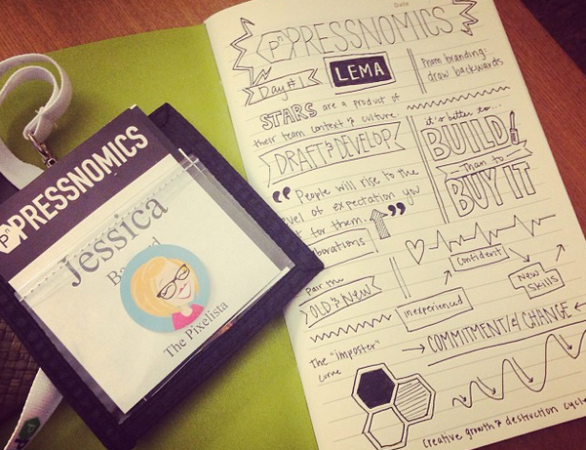One definition of the impostor syndrome is that we're unable to embrace or accept our success. Instead, we attribute it to timing, chance, luck, or something unrelated to our skill and effort.
Another way to define it, which is only slightly different, but the way I've experienced it for more than twenty years, is that the very thing I'm doing, in the area where I'm being trusted to do it, could be looked at by a “real” expert and within moments be characterized as poor or unprofessional.
In the first case success exists but it's not believed. In the second case failure is constantly feared even if it never happens.
Given these descriptions, you might wonder why the title of this post is “embracing the impostor's syndrome.” Trust me, it's a good question.
I talk with a lot of folks in the software industry who, in the privacy of a one-on-one conversation, highlight the insecurities and fears that they're facing.
And my response is always the same.
1. It may be legitimately true that others are smarter than you.
I say this because I don't want to suggest that every person that experiences insecurity is just dealing with symptoms of the impostor syndrome.
But just because someone is ahead of you, and may know more than you about something, doesn't mean there aren't a lot of people behind you that could use your help.
So in the end, my first question is, “who cares?”
2. Fear and insecurities are emotions, not decisions.
I say this because it is completely legitimate to have fear or insecurities. It's ok, in my book, to worry or have stress. These are realities in our world.
But just because you have a feeling (a worry, an insecurity, or some stress) doesn't mean it gets to rule you. Feelings are just that, and only that: feelings. They're not actions. They're not choices.
So in the end, my second question is, “what decisions are you making?”
3. You can decide to let your insecurities fuel or freeze you.
I say this because one choice is to let your insecurities completely freeze you up. They stop you in your tracks because of your worry or stress.
But just because you have the feeling doesn't mean you can't learn to leverage it. You can let your worry exist, and then use it to fuel your actions.
So in the end, my third question is, “when will you let your insecurities work for you rather than against you?”
Fuel instead of Freeze
Your nervousness, stress, fear of getting caught and more can actually fuel (rather than freeze) you.
It's your call. It's your choice.
I spoke yesterday at Pressnomics about this, in relation to high performing teams and cultures.
One example I used was the Green Bay Packers. You can imagine how stressed they could have been, thinking about the departure of Brett Favre. But instead of letting that stress freeze them, they let it fuel them – preparing their players and staff.
Another was Saturday Night Live – in which the fear, stress and insecurity are combined with the compression of time to create a consistently amazing show.
The Impostor's Curve
My friend Jessica took notes, which you see above. In them, you'll see (at the bottom right) what I call the Impostor's Curve. It's a series of escalating peaks. And it can only happen (you can only reach higher levels of performance), if you're willing to let your insecurities or stress drive you back into a learning posture.
My friend Michelle put it best:
The imposter curve: feeling you don't belong at a peak drives you to learn simething new @chrislema #pressnomics http://t.co/psQbgHJIrb
— Michelle Schulp 💯🦄 (@marktimemedia) October 17, 2013
Instead of trying to tell ourselves we're no longer worried about that moment when someone calls us out because we don't know as much as we do, we can choose to use that fear to leverage our learning and growth.
So what will you do? Will you let the insecurity fuel you? Will you embrace it (without giving it more energy or letting it make the decisions for you)?

